Science
Frogs and Toads Together: Why do Amphibians Group Up?April 11, 2025

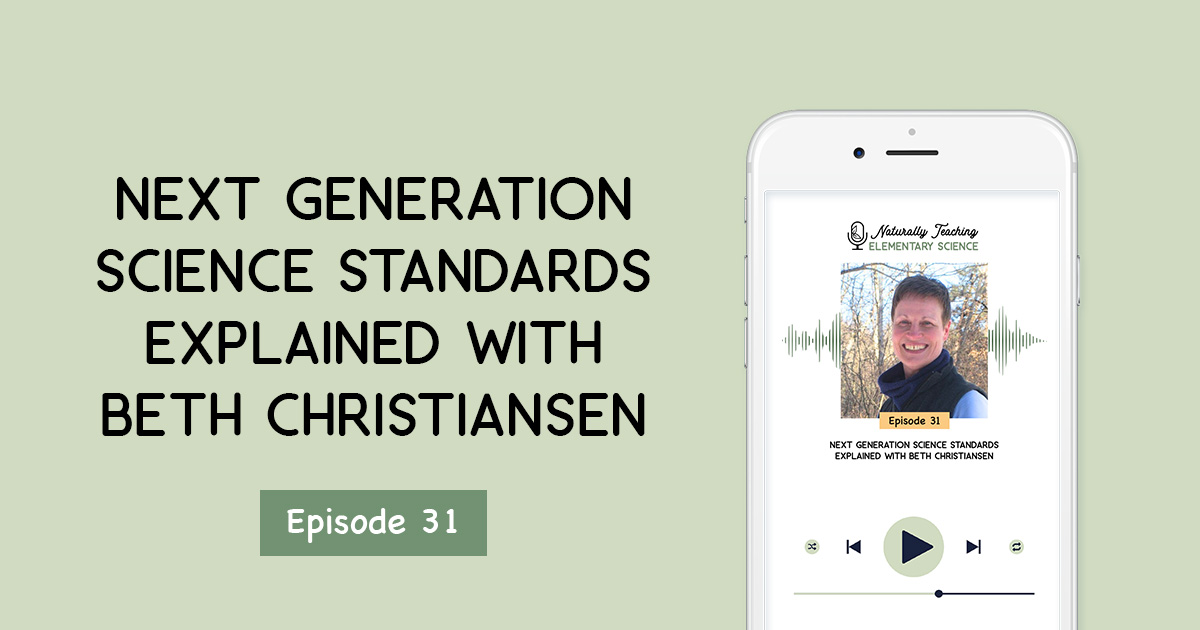
I am so excited to be able to offer you a guest interview all about the Next Generation Science Standards! Beth Christiansen has been in the NGSS world for the last several years and has been trained to help teachers hone their science teaching craft. She has a passion for helping teachers feel more comfortable with this style of teaching so that our students can grow into the little scientists we know they can be.
In this episode, she walks us through different aspects of the Next Generation Science Standards including:
Make sure to hit play so that you can learn more about the Next Generation Science Standards; when used correctly, this way of teaching can change your philosophy on learning! Also, make sure to scroll down to the resources Beth provided us, there is a VERY long and robust list!
Develop class discussion skills in your students so that they feel comfortable with sharing ideas, questions, observations, and more in your class community. That may look like creating class discussion rules altogether such as being respectful, raising your hand to share, putting your finger on your nose if you have a question, and so forth. Then you can practice those skills in any subject, but they are especially fruitful in literacy discussions and science talks.
Make sure to keep a copy of the talk moves used with Next Generation Science Standards near you, it’s a great reference as you practice facilitating class discussions. As you and your students become more comfortable with class discussions, you will see their willingness to share and help each other grow and you’ll also find the added benefit of your students getting along better throughout the day.
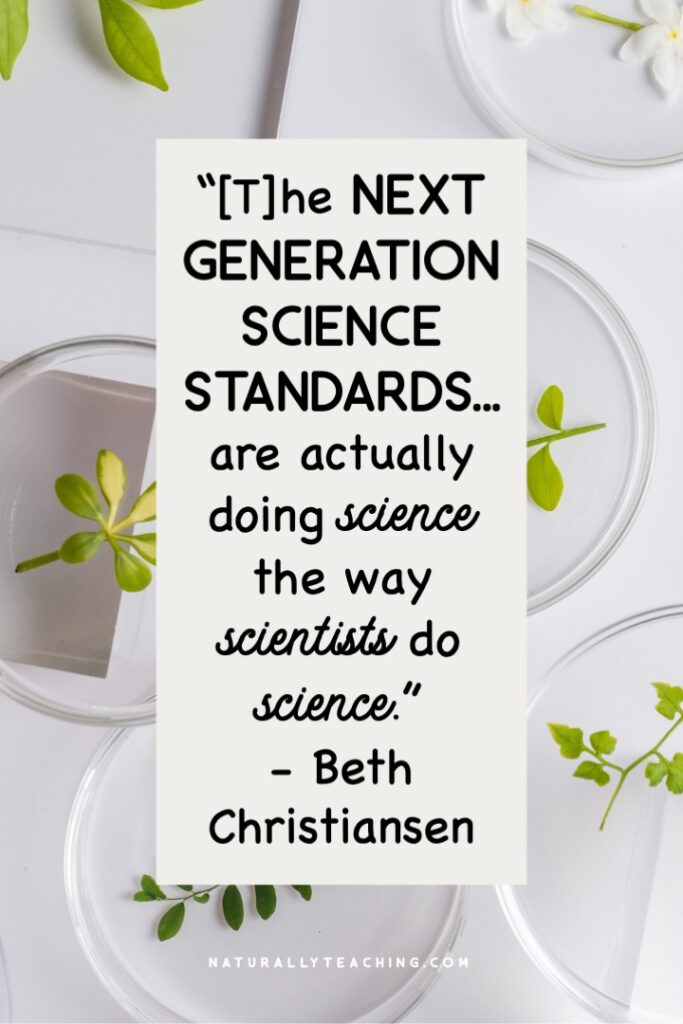
Beth Christiansen is a non-formal educator with the Center for Freshwater Research and Education at Lake Superior State University. She earned her teaching certification from Purdue University and a Master’s degree in middle level education from Central Michigan University. In addition to holding a Michigan teaching certification, she is a certified environmental educator through the Michigan Alliance for Environmental and Outdoor Education (MAEOE) and the North American Association for Environmental Education (NAAEE).
Her experience as a secondary science and math classroom teacher, nature center educator, K-5 curriculum writing coach (Phenomenal Science), and certified Next Generation Science Exemplar facilitator provides opportunities for Beth to design and facilitate professional learning for educators of all grade levels in addition to school programs for preK-12th grade students.
Beth’s programs for both students and educators are rooted in nature-based experiences that focus on connection to place with a goal to inspire learners to be life-long stewards.
Connect with Beth Christiansen:
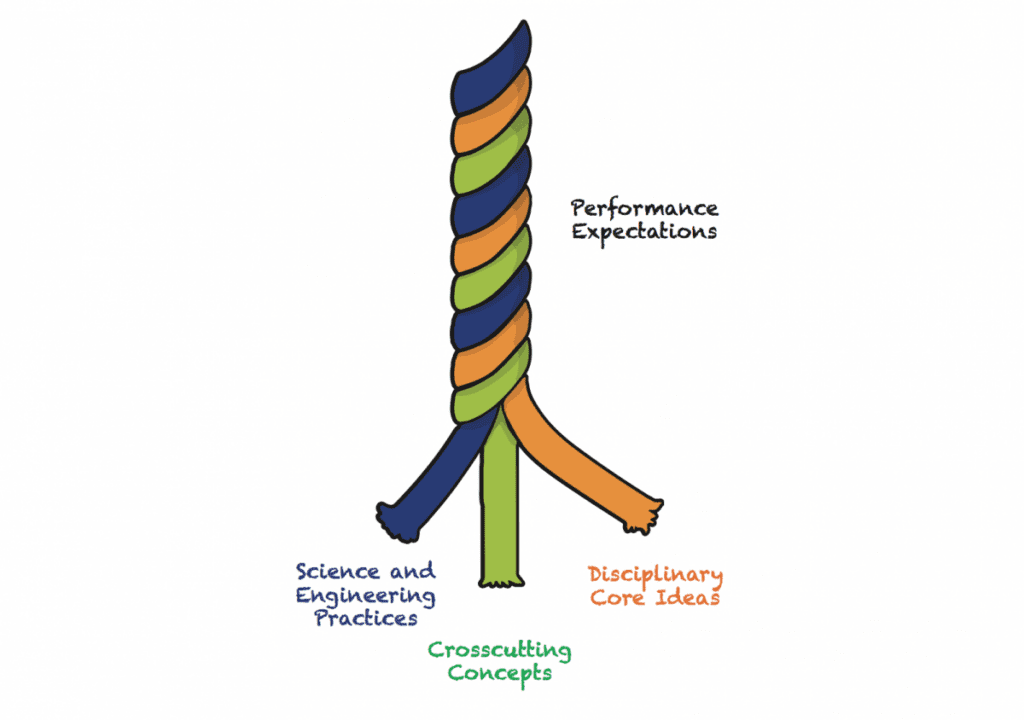
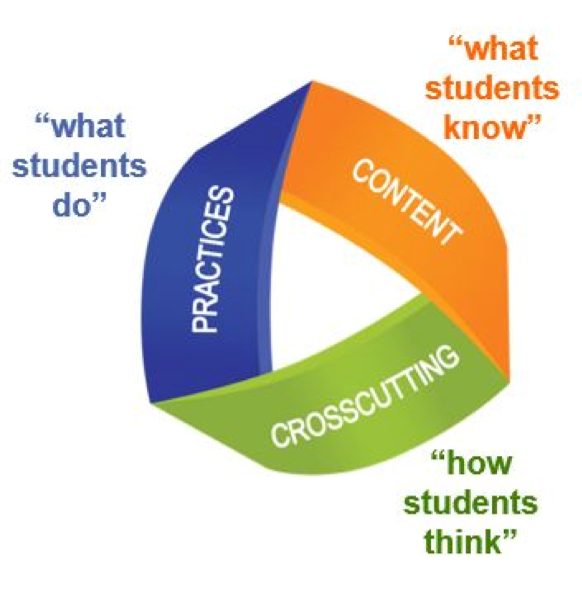
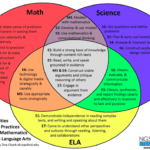
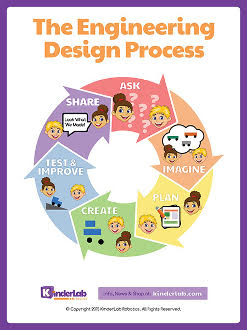
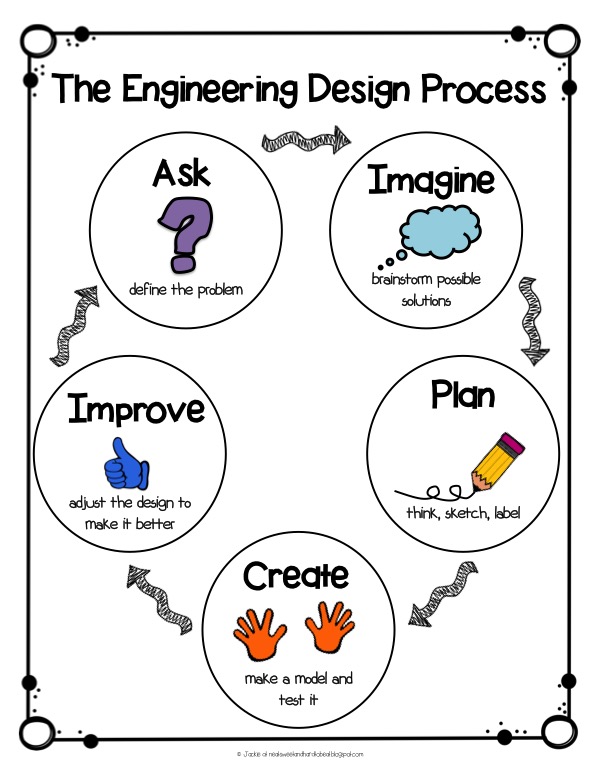
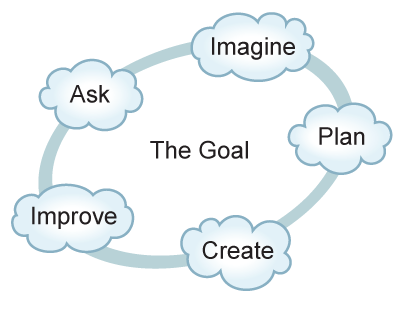
[0:00] Victoria Zablocki
Hey, everybody, welcome back to the Naturally Teaching Elementary Science Podcast. My name is Victoria Zablocki, and I'm your host. And I'm back today with another fantastic interview for you.
And this one is near and dear to my heart. Not only is it with a friend, but it's also about the Next Generation Science Standards and how those standards differ from fact-based science standards. Beth Christiansen is on today to share with us the benefits of teaching in a three-dimensional way, what the different dimensions of Next Generation Science Standards are, and tips for you as teachers to get started today.
She does a fantastic job of explaining the Next Generation Science Standards in an approachable way, making them less intimidating and more attainable. She's also put together a wealth of resources for me to share with you in the show notes, so make sure to check those out after you listen to our chat. But before we get started, I just wanted to share some of Beth's experiences with you.
Beth Christiansen is a non-formal educator with the Center for Freshwater Research and Education at Lake Superior State University here in Michigan. She earned her teaching certificate from Purdue University and a master's degree in middle level education from Central Michigan University. In addition to holding a Michigan teaching certificate, she's a certified environmental educator through the Michigan Alliance for Environmental and Outdoor Education, aka MAEOE, and the North American Association for Environmental Education.
Her experience as a secondary science and math classroom teacher, nature center educator, K-5 curriculum writing coach for Phenomenal Science, and certified Next Generation Science exemplar facilitator provides opportunities for Beth to design and facilitate professional learning for educators of all grade levels, in addition to school programs for pre-K through 12th grade students. Beth's programs for both students and educators are rooted in nature-based experiences that focus on connection to place with a goal to inspire learners to be lifelong stewards.
So as you can tell from her bio, we get along fabulously. So I can't wait for you to hear our conversation. Check it out.
Teaching science in elementary school is crucial for nurturing young minds. But as educators, finding the time and resources to create engaging lessons can be a challenge. That's where this podcast comes in.
Welcome to Naturally Teaching Elementary Science, the show dedicated to supporting elementary teachers in their quest to bring authentic and place-based science experiences to their classroom. I'm Victoria Zablocki, a certified elementary teacher turned outdoor educator. With over a decade of experience coaching teachers on effective science teaching methods, I'm passionate about making science accessible, understandable, and fun for educators and students alike.
Join me as we explore strategies for teaching science in elementary school with practical teaching tips, insightful interviews, picture book reviews, and more. Whether you've taught for a long time or just started your teaching journey, this podcast is your trusty resource for enhancing your science curriculum. So let's grow together.
[3:07] Victoria Zablocki
All right. Hey, everybody. Welcome back to the Naturally Teaching Elementary Science Podcast.
I'm Victoria, and I am here with Beth Christiansen today. And I met Beth, I don't even know how long ago. We met at the Nature Center.
We worked together, educators, doing field trips together. And then we kind of split ways. I stayed at the Nature Center and Beth moved to bigger and different things.
But I'm going to let her tell you all about herself. And what she's here to talk about. So Beth, go ahead and let us know what you've been up to, what you're doing and how you are working with Next Generation Science Standards.
[3:43] Beth Christiansen
Thanks, Victoria. Yeah, I'm really happy to be here and share a little bit about what I know about Next Generation Science Standards. I always wanted to be a teacher, but then I avoided it as long as I could.
So then I started as a middle school science teacher in Midland and I had 14 years of that and then one year as a high school science teacher. And the kids were too old for me, so I needed to back off a little bit. At that point, I had the chance to do a little non-formal education with Victoria, as she described, but also started to learn about how to work with teachers to get us all, you know, sort of masters at our craft.
So I did a little bit of working with curriculum development with Phenomenal Science. I was a writing coach for that and also an instructional coach. So I got to work with teachers to put that phenomenon-based science into the classroom.
And then I started doing professional development. Next Generation Science Exemplar is probably my biggest facilitation job, I guess. But I also have developed specific for different schools or different age groups, professional development to help teachers figure out how to teach in an NGSS way.
[5:12] Victoria Zablocki
That is exactly why you're here, Beth, because you have it all. You've got the background and we're going to talk to you about Next Generation Science Standards, because I know many states have adopted them, but they still seem mysterious to a lot of teachers. So I was wondering if you could explain how Next Generation Science Standards differ from other science standards that we've seen in the past.
[5:33] Beth Christiansen
Yeah. So the kind of old-fashioned science teaching and those science standards, they're more about information, memorization, learning about science. And in that case, the teacher might find themselves giving facts or answers and maybe even feeling like they have to know everything, because they have to give this information to their students.
And students might find themselves thinking that, I need to find the right answer here. You know, I'm looking for a right answer. Whereas if you're thinking about Next Generation Science Standards, those are actually doing science the way scientists do science.
Scientists aren't in the business of science because they know all the answers. They're in the business of science because they have a lot of questions. They ask a lot of questions.
And they're usually trying to figure out, like, how to explain this mystery. I wonder how this thing works. And we call that sort of thing a phenomenon.
They don't know the answer. They're trying to figure it out. And so if we can have our students actually do science the way scientists do science, then they're kind of delving into those mysteries.
Even if they're not the most unique mystery in the world, then they're just trying to figure out answers to their own questions. And so we have, you know, investigations. We're looking for clues.
We're going to, you know, you might call it data, but we're going to, you know, maybe capture our observations. And we're just going to explore together. And maybe, you know, if we're paying attention to what's happening, we might get an answer to our question, or we might actually get another question that we need to look into more, and then maybe another question after that.
And eventually all those questions come up to, you know, kind of learning more about that mystery. It's not fast. It's questions and answers and questions and answers, you know, but learners will hopefully, you know, become those explorers who are at the cutting edge of those mysteries, and teachers, they're guides.
You know, you're not doing all the fun stuff. You're providing experiences for these explorers.
[8:09] Victoria Zablocki
That was very well said. I appreciate the “scientists don't do science because they know the answers”, right? If we just give the answers to our students, that's not going to provide them the opportunity for critical thinking and things.
And that kind of leads into my next question. So we know a little bit more about the background on the Next Generation Science Standards and how they differ. But how does that methodology truly benefit students?
So you mentioned they can think like scientists, they can ask questions, they can be guided. Are there any other benefits that you would like to mention about the Next Generation Science Standard methodology?
[8:44] Beth Christiansen
So I think that if the students are engaged in that phenomenon or phenomena, in general, it kind of draws them in and become sort of owners of their learning. And so their curiosity being piqued now allows them to kind of want to know more and want to expand their learning. It's not just kind of a check mark on a page, it's that continually kind of pressing to learn.
I think, you know, if you use the example of something that's just right in front of us, you know, or behind us, you know, like a shadow, there's so much mystery just in a shadow. And if you can explore that, all of a sudden, you know, if you figure out how a shadow works, you can almost capture the universe, you know, it's how does the solar system work? How does day and night work?
How, you know, does matter and light interact with each other? You know, but something very simple, but you can take it to the next level of exploration and draw students in with something even very basic.
[10:01] Victoria Zablocki
All of that sounds really awesome, and it sounds slightly intimidating if you're not a science teacher. So you talk about phenomena and how that helps with the Next Generation Science Standards. So where could a teacher find like a list or some sort of resource for quality phenomena for their science units?
Because if you're not scientifically inclined, this might sound scary. Is there something that we can provide to teachers to help them feel more comfortable with this?
[10:31] Beth Christiansen
Yes, definitely there is a great website called The Wonder of Science. What's wonderful about that site is it will break down by grade level for you. It will be able to guide you through the different scientific topic areas, what we call disciplinary core ideas.
And so you can take those examples and see video, see pictures, choose from a number of them that might apply to your place, your area where you live, or your interests or your kids' interests.
[11:09] Victoria Zablocki
That sounds fantastic. You did mention one of the dimensions of Next Generation Science Standards there. So can we go into Next Generation Science Standards, like you said earlier, isn't just about facts.
It actually has three different dimensions. Can you kind of describe what those are, and then how teachers can incorporate them into their teaching?
[11:31] Beth Christiansen
Sure. It is actually kind of interesting because we talk about three dimensions, but I'll reveal a little secret that there is a fourth dimension too. So just to throw things out there.
But yes, it is considered three-dimensional teaching. And one of the reasons is because of those science practices. Doing science the way scientists do science.
And so that's called the Science and Engineering Practices. And engineering, by the way, is the fourth dimension. So we'll get there too.
But it is kind of the crux of the matter. Like science and engineering practices are that way to build that exploratory mind, the way to build that intrigue and that excitement about doing science. This is an action.
And so the science and engineering practices are the ways we get students into the science. So that might be things like actually having evidence collection, doing investigations, trying to explain what we've learned. Those kinds of things are exactly what scientists do.
Now to combine with that is a Cross-Cutting Concept. These are across any type of science you're going to study. You will find these concepts involved.
They're things like patterns, like anything you do, you see patterns in it. These can even go into other subject areas as well. But when you think about cause and effect, systems that work with each other, this is the way that we view the world.
And so those cross-cutting concepts are woven with the science and engineering practices. And here's where we get to the actual science. We're finally at the science part of things, the Disciplinary Core Ideas.
And that one little tiny piece there, those are those facts that we used to have to memorize and those are the learnings that somebody else did them, and now we have to learn about them and maybe do an experiment. But now that we've wrapped that science with the exploratory nature of the Practices and that sustainability of those Cross-Cutting Concepts that has us going back to patterns and going back to systems, now that we've woven those together, sort of twisted them together like a rope, all of a sudden that science has meaning to it, and it has the opportunity for exploration and more depth and go deeper into it. The fourth dimension, as I promised, engineering, that was never anywhere before.
And so in order to kind of stretch those science and engineering practices a little bit, the engineering component really helps us look at problem-solving and sort of figuring out how to make something better, or even assess a situation. Was this really the best way to build that bridge? Or is there another option?
And so that gets us to have some deep thinkers and problem-solvers as well.
[15:01] Victoria Zablocki
That's great. I was thinking about that science component of it, that even though you're working towards one of those facts, the journey is what creates those learners. And so, like you said, roping it all together, they're wrapping it together to make it more like a rope.
It all works together to create a journey to that answer, not just here's the answer, now move on. They have an experience that they can call back to, and then that helps them recall and actually fully understand those facts. Whereas previously, they would be told, “okay, the moon phases occur because of the position of the Earth, the Sun and the Moon”, and then they're like, “okay”.
And then they're like, “oh yeah, it's the shadow of the Earth that creates it”, because there was no journey to get to the understanding. Are there any tips that you have for teachers that they could use to incorporate those teachings at the forefront? If they haven't been doing this yet, what are a couple of quick tips that they could use to start using those three dimensions in their teaching?
[15:59] Beth Christiansen
Yeah, that's a great question. I think one of the foundations of this is being able to talk and listen to each other. And those of you who are kindergarten teachers, first grade teachers, don't want to mention a puppy, because then you'll find out about everybody who's uncle and cousin has a puppy and what their name is and somebody has a cat.
So what you want to do is you want to encourage that talk, encourage that, but make it more conversational. Have people also listen to each other and listen to what the observations of their friends, their peers are. So if we go back to say that idea of a shadow, take them outside, look at shadows, but then have students describe what they saw.
Have them look for those patterns in what they saw. Did everyone's shadow go the same direction as mine did? Was mine different shaped than theirs was?
Is that tree different? So now we're starting to share our observations. And you might even start with something as simple as, “could someone repeat or rephrase what Johnny just said?”
Or, you know, “Suzy, did you have a different observation that you'd like to share?” “Do you want to add on to what Suzy just said?” And so all of a sudden, students are working together to add their experience into the group experience.
And so everyone has a different perspective, or maybe the same idea just from a different angle. And by hearing it from other people, you might have somebody who can catch on all of a sudden and say, “oh, okay, that makes more sense because so-and-so said it in a way that now I get it. I can see that.”
And so I think just foundationally setting that classroom culture up to be a culture of interaction, a culture of listening to one another, really building ideas off of each other by letting people talk and letting people share. And you can actually, once you get them going on this, kind of take a step back and watch them interact with each other, and you can sort of sit back prompt, and maybe write a few things down or draw a few pictures. But the students can start really building their understanding just off of the experiences that you've provided them the opportunity to have.
[18:39] Victoria Zablocki
That's awesome. I know that, again, this all sounds wonderful, but if you haven't tried it yet, it seems very intimidating. So, when I was teaching in Michigan, and we were using the Grade Level Content Expectations, aka the GLCEs, there were companion documents that provided lesson plans and units to help achieve the standards.
So, I know you mentioned that one resource for finding phenomena for Next Generation Science Standards, but are there any companion documents similar to what we experienced with the GLCEs that you could use for Next Generation Science Standards for instruction?
[19:16] Beth Christiansen
There is some information that you can find on a website called nextgenscience.org, and it's one that is on this list that I've shared with you, Victoria, and that allows you to choose your grade level. It allows you to choose the subject or even a certain practice, and it will have links to resources. You can even bring up a PDF version of some ideas that will help you with what's called the Performance Expectation, which is the name of what we call that standard.
But it's really that woven together Science and Engineering Practice, Cross-Cutting Concepts and Disciplinary Core Idea. So you go to that website and you will be able to find for different age groups some ideas as to how not only you can use that, but how you can integrate your other subject matters. So think about how awesome that is, where now you don't have to have a block of ELA, and a block of math, and a block of social studies.
You can hit a whole bunch of pins with that one bowling ball. So it's a really great resource to go there and find some of those ideas of how to integrate as well.
[20:40] Victoria Zablocki
That's great. You're speaking my teacher language. I love integration.
[20:45] Beth Christiansen
Very important. And get outside.
[20:48] Victoria Zablocki
Yes. Well, outside is great too. But integrating literacy and science is one of my favorite things.
Beth, thank you so much for all the information. You've given us a lot to think about. Is there anything else that we didn't talk about that you would like to mention?
[21:02] Beth Christiansen
Victoria, I'll just mention that there are some resources that I know you have and you'll put on your website. Some of them are about how to do that talk with your students or some ideas about engineering and that sort of thing. Even some visuals to help you remember these different components of Next Generation Science Standards.
[21:25] Victoria Zablocki
That's great. We as teachers love resources. So thank you, Beth.
I know that this is a hot topic. It's hard for a lot of teachers to come to the understanding of how to do this. Is there a way that people could get a hold of you if they want to reach out and ask you some questions?
[21:38] Beth Christiansen
Sure. I have a fairly easy email address to remember. It's EACConsulting1. That's like Education and Curriculum Consulting, and then the number 1 at gmail.com.
And Victoria, I think you'll have that on your website for people as well.
[22:02] Victoria Zablocki
Awesome. Well, thank you so much for your time. It was great to chat, and I'm sure that this will be super helpful for teachers out there that find Next Generation Science Standards maybe not quite in their ballpark yet, but hopefully after listening to this, they'll have a better understanding and a little courage to give it a go. So thank you for your time.
[22:21] Beth Christiansen
You're very welcome, Victoria. Thank you for having me.
[22:25] Victoria Zablocki
Listening to Beth makes me so excited for the future of science education. You can hear her knowledge and passion as she breaks down the standards and how they can benefit our children. I know this is an intimidating topic, so please make sure you reach out to her if you have any questions. She is a joy to work with.
[22:41]
I want to end with a quick teaching tip to help you on your Next Generation Science Standards journey. But a quick backstory first.
When I was working with our local school district through the Nature Center, I helped them develop their nature curriculum to fulfill their science standards, aka the Next Generation Science Standards. As I was writing the lessons, I didn't provide the teachers tests. There was a lot of concern from the teachers as they wondered how they would know what the students had learned.
My answer was informal questioning and class discussion. Just like Beth talked about, having class discussions can help your students hear from other students and can help them understand the content better. Sometimes it takes hearing from another child to really grasp the concept.
It can also help your students expand on their own ideas as well as their classmates. And it can help you as the teacher learn what students have mastered and what they haven't. So my teaching tip for you today is to develop class discussion skills in your students so that they feel comfortable with sharing ideas, questions, observations and more in your class community.
That may look like creating class discussion rules altogether, such as being respectful, raising your hand to share, putting your finger on your nose if you have a question and so forth. Then you can practice those skills in any subject, but they're especially fruitful in literacy discussions and science talks. Make sure to keep a copy of the talk moves near you, which you can find in the show notes thanks to Beth.
It's a great reference as you practice facilitating class discussions. As you and your students become more comfortable with class discussions, you'll see their willingness to share and help each other grow, and you'll also find the added benefit of your students getting along better throughout the day. If you use informal questioning in class discussions for some of your assessments, you'll also find that you're only “testing” for the content you meant to test for, not whether or not your students can read your test and understand what your multiple choice answers could possibly mean.
So I want to thank you for taking time to listen today. I know you're super busy, and I truly appreciate the time you take to tune in. If you have any questions, wonderings or anything else about the Next Generation Science Standards, get ahold of me on Instagram at Naturally.Teaching, or you can email me at Victoria@naturallyteaching.com.
And don't forget to check out the show notes for this episode at naturallyteaching.com/episode31, where I'll have all the links, all the links that Beth shared with me for you. It is going to be a wonderful Next Generation Science Standard hub, so please check out those links. She grabbed all sorts of great stuff for you, and her contact is there too.
So if you have any questions, burning questions about the Next Generation Science Standards, Beth's your gal. So thanks again for joining me today, and until next time, keep exploring, keep learning, and keep Naturally Teaching.
Thank you so much for tuning in to today's episode of the Naturally Teaching Elementary Science Podcast. I hope you found it informative, inspiring, and full of actionable insights to enhance your science teaching journey. Connect with me on social media for more updates, science tidbits, and additional resources.
You can find me on Instagram and Facebook at Naturally.Teaching. Let's continue the conversation and share our passion for elementary science education together. Don't forget to visit my website at naturallyteaching.com for all the show notes from today's episode.
If you enjoyed today's episode, please consider leaving a review on your favorite podcast platform. Your feedback helps me improve and reach more educators just like you. Thank you again for listening, and until next time, keep exploring, keep learning, and keep naturally teaching.
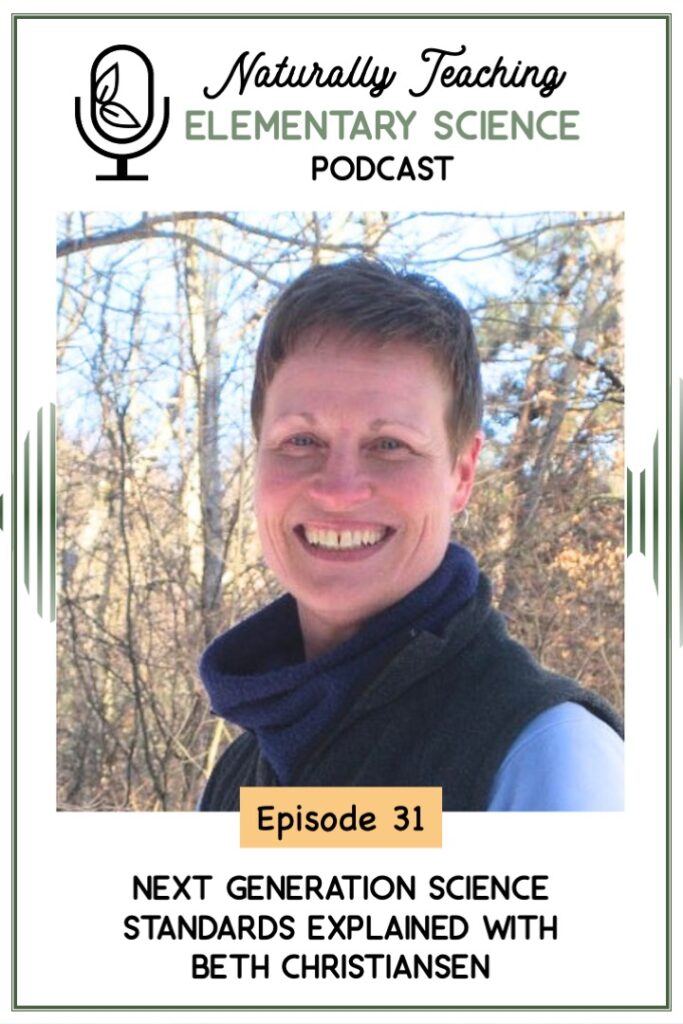
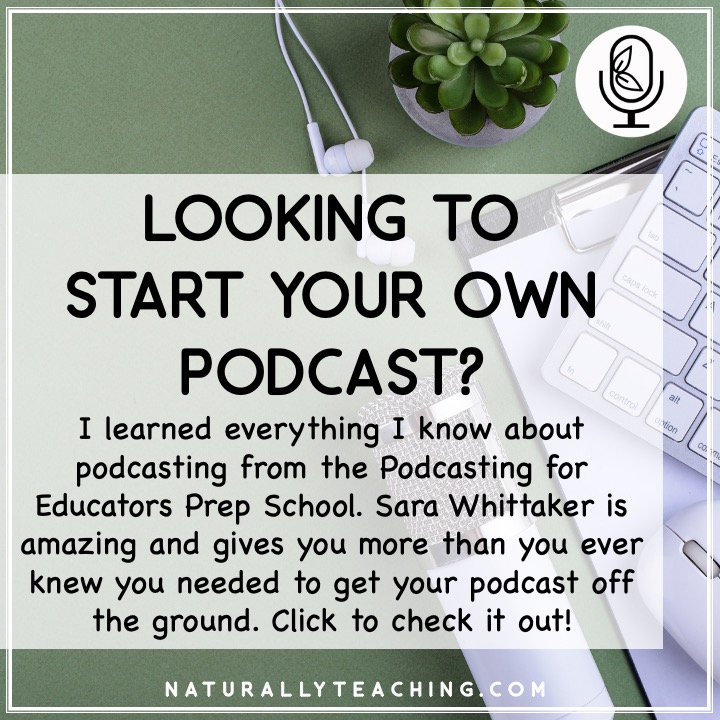
0